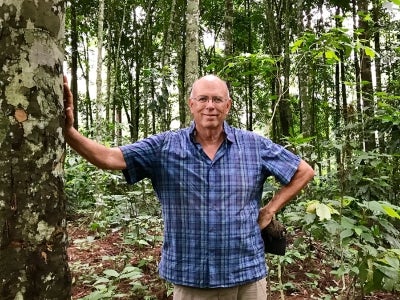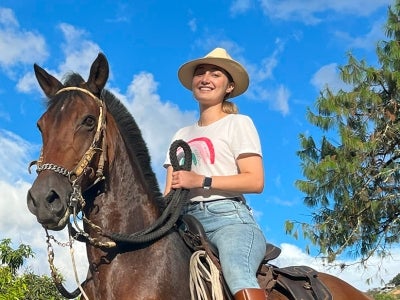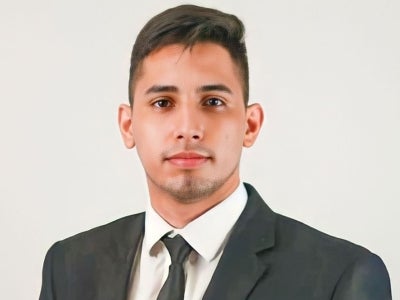
Carlos Manuel Rodriguez portrait on a beach
Carlos Manuel Rodriguez became the Global Environment Facility’s fifth CEO and Chairperson in September 2020, after decades of working with the multilateral trust fund as a government minister and parks service director in Costa Rica. In an interview, he shared his hopes for the coming year and decade, and reflected on how the COVID-19 pandemic has affected his first six months in a new job.
You joined the GEF as CEO and Chairperson six months ago, in the middle of a global pandemic. What has it been like leading a global team and partnership without being able to meet in person?
It has been an unusual year, for everyone in the Global Environment Facility community. Like other people who have changed jobs or started new ones during the pandemic, I have had the experience of getting to know many new colleagues and partners without meeting them in person. In this context I am extremely grateful that the technology and the good will of the people has helped me connect, learn, and get up to full speed amid demanding working conditions. It has been very impressive for me to see how our entire network of partners has come together through technology and other tools to continue delivering on our mission throughout these complex times.
For me, working remotely has had a positive and bright side as well. Since in Costa Rica we never had a lockdown quarantine, I was able to move around the country and work from different national parks and remote places because we have a good and reliable Wi-Fi system in the country. This has allowed me to take breaks from my virtual office and do some birding, surfing, and walking in the forest that in normal times would not have been possible.
What are you most looking forward to in 2021?
As we see the light at the end of the tunnel in this pandemic, I very much look forward to finally meeting colleagues and partners in person, and to living in a post-COVID era where people feel safe and happy. We have a lot to do this year to create the blueprints for a more sustainable future, especially when it comes to confronting climate change, biodiversity loss, pollution, and other pressures on our planet. I know that the GEF has an important role to play in turning these goals into realities, particularly through our partnerships that I know will only grow stronger as we work together this year to deliver a green, blue, clean and resilient recovery to the COVID-19 pandemic.
You spent decades working with the Global Environment Facility in government roles in Costa Rica, before becoming CEO and Chairperson. Is there a GEF-supported initiative that is close to your heart?
Oh yes. One of Costa Rica’s first GEF investments in the mid 90’s involved plans to use protected areas as a driver of growth and jobs in rural areas. With support from the GEF, we were able to build more than 10 visitor centers, park ranger houses, research labs, and trails in national parks. That investment led to a lot of visitors, bolstered economic activity in nearby communities, and helped position Costa Rica as a destination for nature-based tourism. It was not easy. In some remote locations such as paramos and roadless areas we had to build new infrastructure. I remember I had to buy 35 horses to carry materials up to 4,000 meters above sea level in Chirripo National Park. After we finished building that visitor center, we donated the horses to the local community who created a small tourist operation and used the horses to carry baggage and food for tourists. Eventually we transferred the management of the visitor center to the community and that together with the other new tourist services now generates $1 million in an annual income in the local area. By the way, another result of these initiatives is that poaching and illegal timber disappeared.

Photo courtesy of Carlos Manuel Rodriguez
What first prompted you to work in environmental conservation and restoration?
When I was young, I spent many weeks of the year in a coffee farm right next to a large wilderness area. Over the years I saw how that wilderness was burned to the ground as the country grew its agricultural footprint and developed in a hastily planned, unsustainable way. This had a big impact on me.
I also drew inspiration from literature. I read a lot as a kid, and loved to read about the Victorian explorers in Africa, particularly the life and adventures of Henry Morton Stanley. I then learned about Charles Darwin, Alfred Russel Wallace, Alexander von Humboldt, Henry Walter Bates, John James Audubon, John Muir, and other naturalists. I remember reading about the early explorers and naturalists that visited Costa Rica in the 19th century and fell in love with their stories of a wild, unexplored Costa Rica.
Surfing is a big part of your life. What life lessons has surfing taught you?
For me, surfing is a lifestyle, not a sport. The surfing community is very special. Even though we may be a little rebellious we have a good, solid connection with nature and its creatures.
One lesson I’ve learned in 40 years of surfing is that if you go for the first big waves of the set and you miss, the bigger waves behind will break on your head! This has taught me to be patient, in the water and in life.
What advice would you give a young person contemplating a career related to the environment?
You don’t need to be a biologist to save the planet! Environmental protection and restoration is not just a matter of natural sciences. No matter which professional or academic path you choose, there is a role for you in the sustainability effort.
Environmental challenges can be overwhelming. What gives you hope?
The human spirit gives me enormous hope. We have overcome many daunting challenges in our species’ history. Sustaining human and natural life on this planet will be another one.
What changes do you hope to see in the world by the time you retire?
I won’t retire. There is too much to do. But one wish I have is to see my future grandkids fishing and swimming in the same rivers grandfathers once enjoyed, which are now too polluted for such activities. We are in the process of cleaning and restoring those rivers and I hope this will be possible within a few years.


